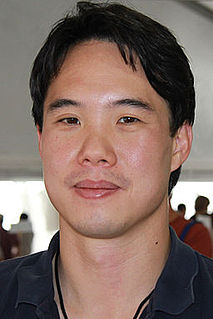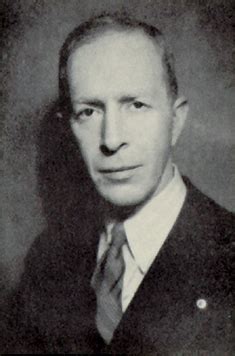A Quote by Thomas Pynchon
Someday she might replace whatever of her had gone away by some prosthetic device, a dress of a certain color, a phrase in a letter, another lover.
Related Quotes
She remembered that once, when she was a little girl, she had seen a pretty young woman with golden hair down to her knees in a long flowered dress, and had said to her, without thinking, "Are you a princess?" The girl had laughed very kindly at her and asked her what her name was. Blanche remembered going away from her, led by her mother's hand, thinking to herself that the girl really was a princess, but in disguise. And she had resolved that someday, she would dress as though she were a princess in disguise.
Her thoughts ran away to her girlhood with its passionate longing for adventure and she remembered the arms of men that had held her when adventure was a possible thing for her. Particularly she remembered one who had for a time been her lover and who in the moment of his passion had cried out to her more than a hundred times, saying the same words madly over and over: "You dear! You dear! You lovely dear!" The words, she thought, expressed something she would have liked to have achieved in life.
I once heard a woman who had lost her dog say that she felt as though a color were suddenly missing from her world: the dog had introduced to her field of vision some previously unavailable hue and without a dog, that color was gone. That seemed to capture the experience of loving a dog with eminent simplicity. I'd amend it only slightly and say that if we are open to what they have to give, dogs can introduce us to several colors with names like wildness, nurturance, trust and joy.
I can't catch her by copying her, I can't draw her with a borrowed stencil. She is all the things a lover should be and quite a few a lover should not. Pin her down? She's not a butterfly. I'm not a wrestler. She's not a target. I'm not a gun. Tell you what she is? She's not Lot no. 27 and I'm not one to brag.
She stared at herself in the mirror. Her eyes were dark, almost black, filled with pain. She'd let someone do that to her. She'd known all along she felt things too deeply. She became attached. She didn't want a lover who could walk away from her, because she could never do that - love someone completely and survive intact if her left her.
Staring at her face, she began to fancy her outer layer had begun to melt away while she wasn't paying attention, and something -- some new skeleton -- was emerging from beneath the softness of her accustomed self. With a deep, visceral ache, she wished her true form might prove to be a sleek and shining one, like a stiletto blade slicing free of an ungainly sheath. Like a bird of prey losing its hatchling fluff to hunt in cold, magnificent skies. That she might become something glittering, something startling, something dangerous.
You had every right to be. He raised his eyes to look at her and she was suddenly and strangely reminded of being four years old at the beach, crying when the wind came up and blew away the castle she had made. Her mother had told her she could make another one if she liked, but it hadn't stopped her crying because what she had thought was permanent was not permanent after all, but only made out of sand that vanished at the touch of wind and water.
At night, the house thick with sleep, she would peer out her bedroom window at the trees and sky and feel the presence of a mystery. Some possibility that included her--separate from her present life and without its limitations. A secret. Riding in the car with her father, she would look out at other cars full of people she'd never seen, any one of whom she might someday meet and love, and would feel the world holding her making its secret plans.
What the founders of modern science ... had to do, was not criticize and to combat certain faulty theories, and to correct or to replace them by better ones. They had to do something quite different. They had to destroy one world and replace it by another. They had to reshape the framework of our intellect itself, to restate and to reform its concepts, to evolve a new approach to Being, a new concept of knowledge, and a new concept of science - and even to replace a pretty natural approach, that of common sense, by another which is not natural at all.
And then she said nothing else, for Henry put his arms around her and kissed her. Kissed her in such a way that she no longer felt plain, or conscious of her hair or the ink spot on her dress or anything but Henry, whom she had always loved. Tears welled up and spilled down her cheeks, and when he drew away, he touched her wet face wonderingly. "Really," he said. "You love me, too, Lottie?






































